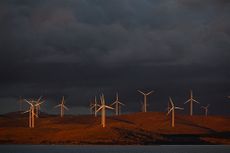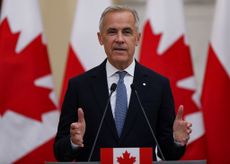Energy Stocks
The latest news, updates and opinions on Energy Stocks from the expert team here at MoneyWeek
-

Renewable energy trusts: is there any hope for the sector?
The outlook for renewable energy trusts has gone from bad to worse this year, with the industry being caught in a 'perfect storm'
By Rupert Hargreaves Published
-

Cash in on the growth potential of electrification companies
Opinion Martin Todd, portfolio manager, head of sustainable equities, Federated Hermes, highlights three electrification companies where he'd put his money
By Martin Todd Published
Opinion -

Investors should cheer the coming nuclear summer
The US and UK have agreed a groundbreaking deal on nuclear power, and the sector is seeing a surge in interest from around the world. Here's how you can profit
By Dr Matthew Partridge Published
-

The problem with renewables trusts
The value of assets owned by renewables trusts is far more volatile than investors expected
By Rupert Hargreaves Published
-

'The City's big bet on green finance fails to pay out'
Opinion Insurers and banks are backing away from “green finance”, and there is not much sign of the green boom we were promised. That’s a problem for the City
By Matthew Lynn Published
Opinion -

First Solar is set to shine – should you invest?
Solar-power specialist First Solar will benefit from Donald Trump’s policies, says Matthew Partridge
By Dr Matthew Partridge Published
-

Private assets: profit from the potential in these funds
Opinion Charlotte Cuthbertson and Tom Treanor of the Migo Opportunities Trust highlight three funds where they'd put their money
By Charlotte Cuthbertson Published
Opinion -

Energy infrastructure companies will provide a lift for your portfolio
Opinion Stacey Morris, Head of Energy Research at VettaFi, highlights three energy infrastructure stocks that she'd put her money in
By Stacey Morris Published
Opinion -

How to invest in nuclear power
We need nuclear power to go green, says Dominic Frisby. But there is a better option than huge power stations
By Dominic Frisby Published
